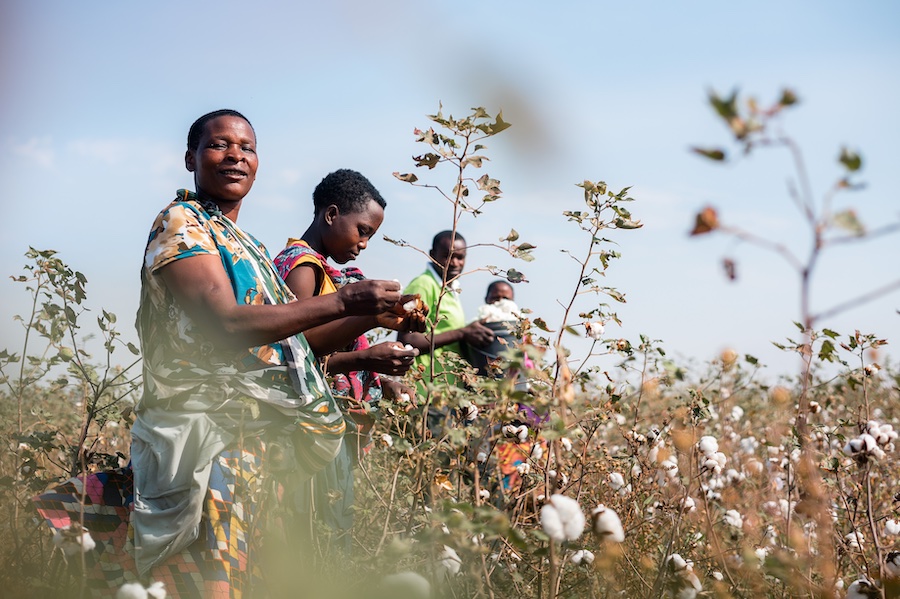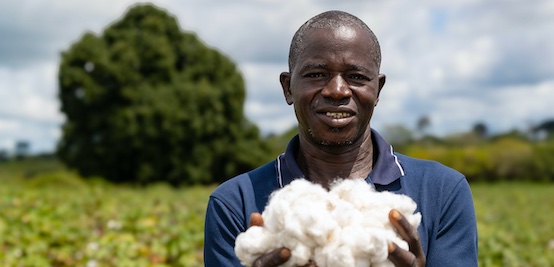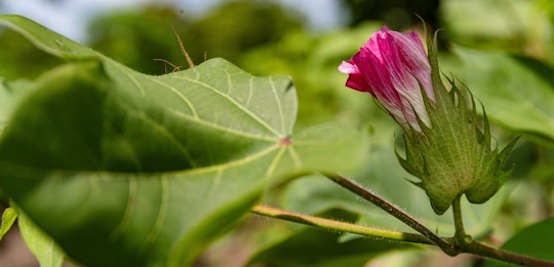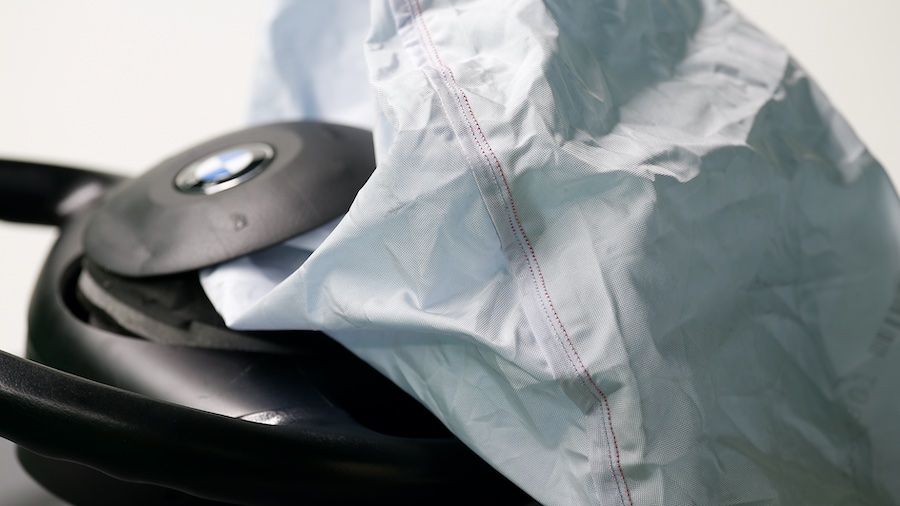#Raw Materials
Cotton farmers in Benin benefit from organic cotton cultivation
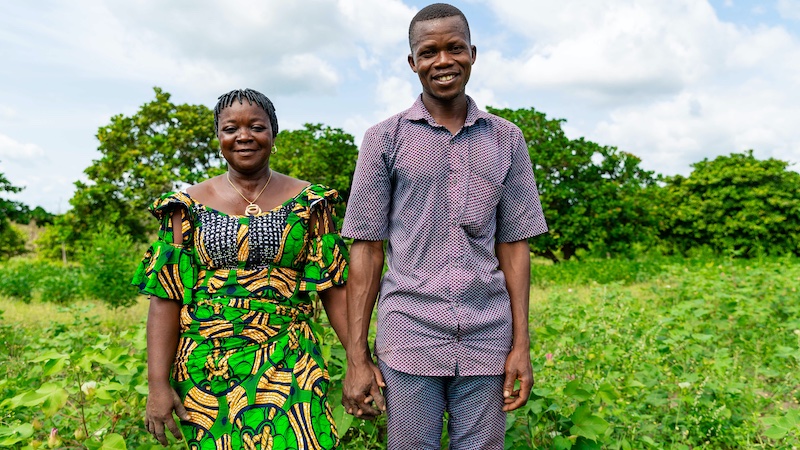
Due to its positive results, the project will now be extended into a second phase. Implemented by OBEPAB (Organisation Béninoise pour la Promotion de l’Agriculture Biologique), the project was funded by BMZ (the German Federal Ministry for Economic Cooperation and Development) in collaboration with GIZ (Deutsche Gesellschaft für Internationale Zusammenarbeit), the Pesticide Action Network (PAN) UK, Paul Reinhart AG, and the Aid by Trade Foundation (AbTF).
Reaching nearly 9,000 farmers, the community project doubled the number of cotton farmers who have switched to growing organic cotton in Benin. They are benefiting from the project’s broad array of measures, which not only enabled them to switch from conventional cotton to CmiA Organic production but also contributed to a significant increase in their incomes. Within three years, the production of organic cotton verified under CmiA Organic grew by 65 percent; the profitability of small-scale farms increased as well, by an average of 9 percent. In addition to the crucial transfer of knowledge on agricultural topics such as organic pest management or seed varieties—conducted via training courses, workshops, and other events—the project also focussed on empowering women. For instance, the proportion of women holding leadership positions in the committees of the co-operatives had increased by 30 percent by the end of the project.
“The cotton farmers are very important to The Aid by Trade Foundation. We are pleased to have successfully supported them in switching to organic cotton, and we look forward to continuing to do so together with OBEPAB, which plays a key role in this effort,” says Alexandra Perschau, the head of standards and outreach at AbTF, adding, “We also pride ourselves on offering these cotton producers greater market access through two of our standards—Cotton made in Africa (CmiA) and CmiA Organic—as the Aid by Trade Foundation is a key partner for the global textile trade with over 2,700 partners worldwide.”
Around 30 percent of cotton produced in Africa is verified under CmiA or CmiA Organic. It is in great demand internationally, with regular purchasers including well-known brands and retailers. Recently, the fashion juggernaut Bestseller reported buying a record volume of CmiA Organic cotton from Africa.
Benjamin Mohr, the deputy manager of the program “Sustainability and Value Creation in Supply Chains” (AgriChains) at GIZ, comments, “Through AgriChains, one of our global programmes, we are making agricultural supply chains green, fair, and inclusive. By bringing together businesses, governments, and civil society, we can address global challenges through joint action. In Benin, we are doing just that: connecting and strengthening stakeholders throughout the cotton supply chain, from farm to market.” He adds, “We are focussing on the organic cotton sector in Benin and its links to global markets, with the ultimate aim of building up the resilience of cotton-growing communities.” Marco Bänninger from Reinhart complements on that: “In addition to CmiA Organic from Tanzania, which has been an integral part of the supply chain for several years, we are now able to offer another origin with Benin CmiA Organic Cotton, which is known for its excellent quality characteristics.” Rajan Bhopal, International Project Manager, Pesticide Action Network UK, is pleased with the results of the project: “This project demonstrates the impact that high-quality farmer support has on supporting cotton farmers livelihoods and resilience. By adopting agroecological practices and locally-produced bio-inputs, organic farmers in Benin are growing healthy crops with much lower costs, leading to significantly improved income, better health and improved soils.”
During a recent visit to Benin’s new textile production centre and a subsequent visit to areas where CmiA Organic cotton is grown, a delegation representing AbTF, GIZ, the International Cotton Advisory Committee (ICAC), and the African Cotton Foundation (ACF) was able to personally confirm the momentum of Benin’s textile sector and the growing importance of organic cotton production. “We met motivated farmers committed to growing high-quality organic cotton that is good for the environment and the health of their families,” says Alessandra Fiedler, who is co-responsible for the implementation of the project in Benin on behalf of GIZ. She continues, “Everything is in place to expand organic production and to establish Benin as a destination of choice for both the procurement and the processing of organic cotton. We are therefore pleased to start a new phase of co-operation with OBEPAB, Reinhart, AbTF, PAN UK, and SODECO.”



